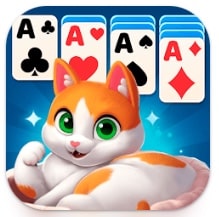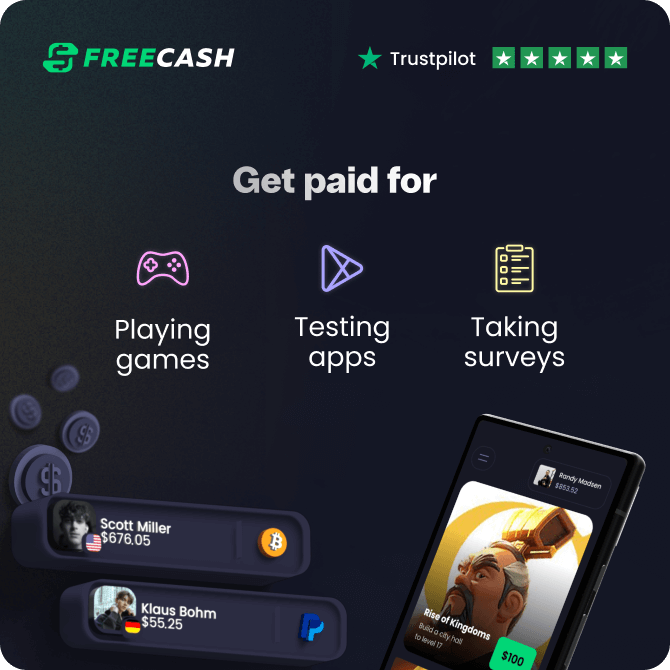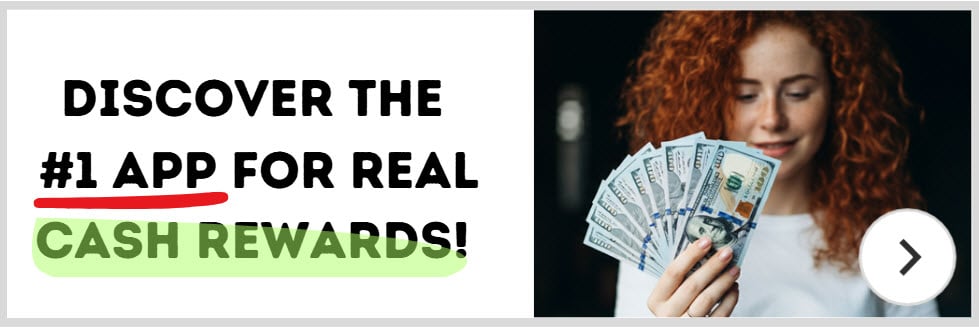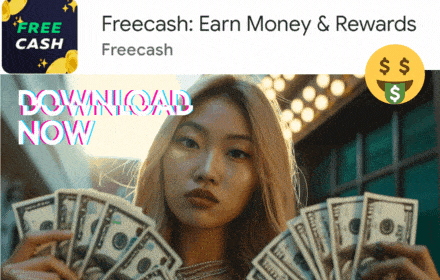 Welcome to my Cards Money: Cat Solitaire Review!
Welcome to my Cards Money: Cat Solitaire Review!
Every so often, another “money-making” app appears on the Play Store that tries to dress up a familiar game in dollar signs.
This time it’s Cards Money: Cat Solitaire, developed by Unlimited Happy Game out of Hong Kong, a company with just 10k installations to its name.
On the surface, it’s solitaire with a cute cat slapped on the logo. But dig a little deeper and you’ll find it’s yet another “early access” title dangling PayPal promises in front of players while quietly raking in ad revenue.
And, if you’re not careful, you might be trading something far more valuable than your time: your personal data.
So, is this game a fun little way to earn some spare change, or just another purr-suasive gimmick? Let’s deal the cards and find out.
👉 Before you leave, click here and discover my favorite app that pays for playing games!
First Look – Cats, Cards, and Currency
Boot up Cards Money: Cat Solitaire, and you’ll immediately notice the interface is less about solitaire and more about reminding you of the so-called “money” you’re chasing.
At the top of the screen, there’s a gem-based currency, a three-hour timer, and of course, a PayPal balance counter that whispers, “keep playing, and you might cash out.”
There’s also a generic in-game coin currency that’s there for show.
In other words, before you even move a card, the game sets the stage: this isn’t about enjoying solitaire—it’s about convincing you to keep tapping in hopes of seeing your PayPal account tick upward.
The Gameplay – Solitaire With Ads Glued On
Once you get through the inevitable ad break (yes, one pops up almost immediately), you’re dropped into a basic solitaire layout.
Score, time, and move counters sit at the top, and your classic stack of cards awaits.
It’s solitaire in its purest form, nothing innovative or creative—unless you count the cat mascot on the app logo, which doesn’t even bother to show up in-game.
If you’re not great at solitaire—don’t worry, neither am I—the game does offer “abilities” to help you out.
But, of course, there’s a catch. To use them, you’ll need to watch yet another ad. Get used to hearing that phrase, because it’s the running theme here: every little thing you do is interrupted or conditioned by an advertisement.
Play, watch an ad. Claim gems, watch an ad. Need a power-up? You guessed it—watch an ad.
It doesn’t take long to realize that the “cat” in the title isn’t the one being milked here—it’s you.
The Rewards – Pocket Change for Hours of Play

This reward platform is going viral! Cash out via PayPal, Visa, Gift Cards, and in-game currencies - Click here to find out how to generate an extra $10+ per day!
Let’s talk about the part that keeps people downloading these apps: the potential for real money.
Just like other “earn jackpot” games, Cards Money: Cat Solitaire flashes PayPal balances at you to keep you hooked.
Every round you play, you collect a few gems or cents toward that balance. The problem, as always, is scale.
In my test, I managed to generate a whopping USD 0.10 in about 40 minutes. And yes, to the game’s credit, the money did arrive in my PayPal account within five minutes of cashing out.
But let’s be honest: earning seven cents in nearly an hour is not exactly what anyone would call “worth it.”
If you plan on making more than pocket change, be prepared for hours upon hours of repetitive gameplay and ad-watching.
So while the app isn’t technically lying when it says you can withdraw, it’s still painting an unrealistic picture of “earnings.” You won’t pay your bills with solitaire. You’ll be lucky if you buy a stick of gum.
The Data Problem – Read This Before You Play
Now, here’s where things get more serious. Unlike many mainstream games, Cards Money: Cat Solitaire does not encrypt user data.
That means any personal information you enter—email addresses, PayPal details, possibly even device information—can potentially be intercepted, stolen, or sold.
Think about that for a second. You’re trading your data, something far more valuable than a few cents, for the promise of tiny payouts.
And since this game is developed by a little-known company operating in early access, there’s no real accountability if something goes wrong.
At best, your inbox fills up with spam. At worst, you’re dealing with identity theft.
This is the danger that too many players overlook when they see the word “PayPal” slapped onto a game.
The developers know you’ll be blinded by the chance at “free money,” and they’re counting on you not reading the fine print about data safety.
The Early Access Excuse – A Convenient Shield
Another point worth mentioning: this game is still in “early access.” That’s not just a development phase; it’s a convenient shield against player backlash.
Because it’s early access, players can’t leave public reviews on the Play Store. That means if you’re frustrated, realize the payouts aren’t worth it, or discover the data risks, you can’t warn others with a one-star review.
It’s a clever move for the developer: rake in downloads, run ads, collect data, and block public criticism under the guise of “still testing the game.”
If that doesn’t raise a red flag, I don’t know what will.
Why People Still Play – The Illusion of Easy Money
So why do apps like Cards Money: Cat Solitaire keep attracting players, despite obvious flaws? The answer is simple: the illusion of easy money.
The idea that you can earn real cash while playing a simple card game is incredibly tempting, even if deep down you know it sounds too good to be true.
And the app does just enough to keep that illusion alive. The quick $0.10 payout I mentioned earlier? That’s intentional. The developers want you to believe larger cash-outs are possible if you just keep playing. But in reality, payouts get smaller over time…
The result: you’re spending hours watching ads for pennies, while the developer earns actual dollars from your activity.
Final Verdict: Cat Got Your Data?
Cards Money: Cat Solitaire is exactly what it looks like: an average solitaire clone wrapped in promises of PayPal payouts.
Yes, it pays out small amounts. No, you’re not going to get rich. Not even close.
What’s more concerning is the lack of data encryption. Trading your personal information for seven cents an hour is not just a bad deal—it’s reckless.
Combine that with constant ads, uninspired gameplay, and the safety net of “early access,” and it’s clear this app is more about the developer’s earnings than yours.
So, unless your definition of fun is sacrificing your data privacy and free time for pocket change, this cat is better left unplayed.


